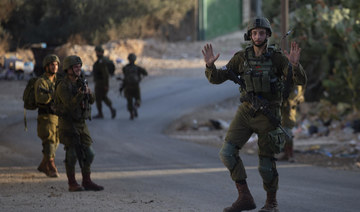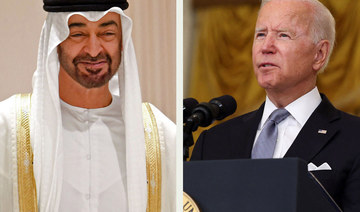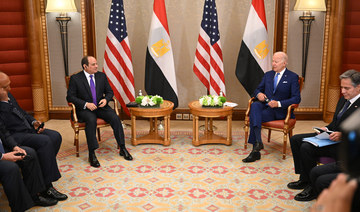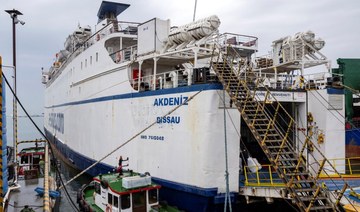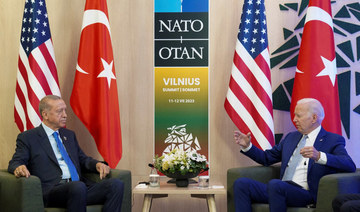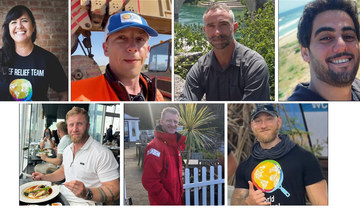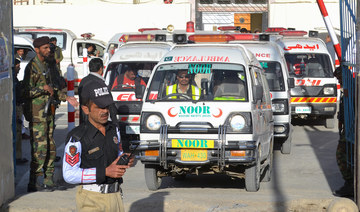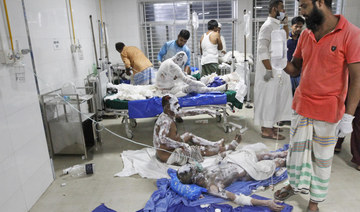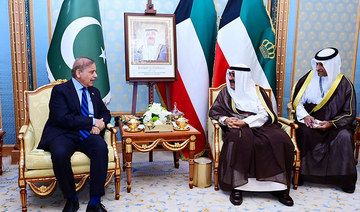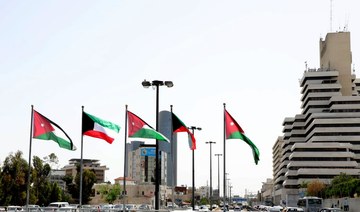JERUSALEM/WASHINGTON: New Israeli Prime Minister Naftali Bennett plans to push for a new Iran strategy during his first White House visit.
He is saying he will urge US President Joe Biden not to revive the 2015 nuclear deal with Tehran.
Biden’s aides hope the talks will set a positive tone for his relationship with Bennett, a far-right politician and high-tech millionaire who ended Benjamin Netanyahu’s record 12-year run as prime minister in June.
This would stand in sharp contrast to years of tensions between the conservative Netanyahu, who was close to former President Donald Trump, and the last Democratic administration led by Barack Obama with Biden as his vice president.
The visit gives the US administration an opportunity to demonstrate business as usual with its closest Middle East ally while it contends with the chaotic situation in Afghanistan, Biden’s biggest foreign policy crisis since taking office.
The talks will be relatively low-key. The two leaders are expected to speak briefly to a small pool of reporters during their Oval Office talks but will not hold a joint news conference.
Bennett is less dramatic but publicly just as adamant as Netanyahu in pledging not to allow Iran, which Israel views as an existential threat, to build a nuclear weapon, telling a cabinet meeting on Sunday the situation was at a critical point.
“Iran is advancing rapidly with uranium enrichment and has already significantly shortened the time it would take to accumulate the material required for a single nuclear bomb,” he said.
Bennett said he would tell Biden: “This is the time to stop the Iranians, not to give them a lifeline in the form of re-entering an expired nuclear deal.”
A US official said Bennett’s expected entreaties for the Biden administration to drop its efforts to revive the agreement are not likely to bear fruit.
To Israeli acclaim, Trump in 2018 withdrew the United States from the deal between six world powers and Iran. He deemed it too advantageous for Tehran and reimposed US sanctions.
In a report seen last week by Reuters, the International Atomic Energy Agency said Iran had accelerated uranium enrichment to near weapons-grade.
Iran has consistently denied seeking a bomb, but the enrichment raised tensions with the West as both sides seek to resume talks on reviving their deal to curb Tehran’s nuclear activities in return for the lifting of sanctions.
Bennett told his cabinet he would present Biden with “an orderly plan that we have formulated in the past two months to curb the Iranians, both in the nuclear sphere and vis-à-vis regional aggression.” He gave no further details.
Asked on Monday about any new Iran strategy proposal from Bennett, US State Department spokesman Ned Price said: “I will leave it to the Israeli prime minister to describe to the American president any thoughts that the Israeli government may have when it comes to Iran.”
Bennett, 49, is the son of American immigrants to Israel. A former head of Israel’s main West Bank settlers council, he heads an unlikely coalition of left-wing, right-wing, centrist and Arab parties.
With consensus on Palestinian statehood virtually impossible within the diverse Israeli government, Biden and his aides are not expected to press Bennett for any major concessions toward the Palestinians in his first foreign visit.
But even with little sign of US pressure to resume peace negotiations with the Palestinians that collapsed in 2014, Israel faces concern from Washington over its settlement activity in areas it captured in the 1967 Middle East war.
The Biden administration has already made clear it opposes further expansion of Jewish settlements on occupied land Palestinians seek for a state. Most countries consider such settlements illegal. Israel disputes this.
So far, Bennett, who has advocated annexation of parts of the West Bank, has moved cautiously on the settlement issue.
Scheduled approval last week of 2,200 new settler homes, along with 800 houses for Palestinians, was postponed, apparently to avoid dissonance with Washington ahead of his visit.
But rising tensions and violence along the Israel-Gaza border, three months after an 11-day war between Israeli forces and Palestinian militants, could cast a shadow over Bennett’s trip.
Israel’s new leader to present Iran plan in first White House visit
https://arab.news/4f65c
Israel’s new leader to present Iran plan in first White House visit
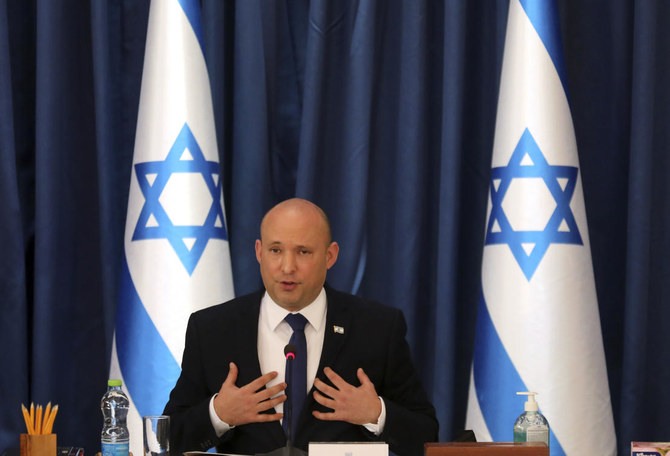
- Naftali Bennett is saying he will urge U.S. President Joe Biden not to revive the 2015 nuclear deal with Tehran
- Biden's aides hope the talks will set a positive tone for his relationship with Bennett
Why Israel is so determined to launch an offensive in Rafah. And why so many oppose it
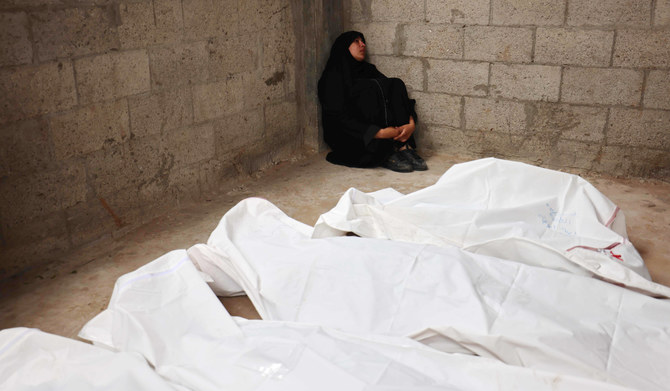
- Israel has killed more than 34,000 Palestinians, according to Gaza’s Health Ministry
- Palestinians live in densely packed tent camps, overflowing UN shelters or crowded apartments, and are dependent on international aid for food, with sanitation systems and medical facilities infrastructure crippled
JERUSALEM: Israel is determined to launch a ground offensive against Hamas in Rafah, Gaza’s southernmost town, a plan that has raised global alarm because of the potential for harm to more than a million Palestinian civilians sheltering there.
Even as the US, Egypt and Qatar pushed for a ceasefire deal they hope would avert an assault on Rafah, Prime Minister Benjamin Netanyahu repeated on Tuesday that the military would move on the town “with or without a deal” to achieve its goal of destroying the Hamas militant group.
“We will enter Rafah because we have no other choice. We will destroy the Hamas battalions there, we will complete all the objectives of the war, including the return of all our hostages,” he said.
Israel has approved military plans for its offensive and has moved troops and tanks to southern Israel in apparent preparation — though it’s still unknown when or if it will happen.
About 1.4 million Palestinians — more than half of Gaza’s population — are jammed into the town and its surroundings. Most of them fled their homes elsewhere in the territory to escape Israel’s onslaught and now face another wrenching move, or the danger of facing the brunt of a new assault. They live in densely packed tent camps, overflowing UN shelters or crowded apartments, and are dependent on international aid for food, with sanitation systems and medical facilities infrastructure crippled.
WHY RAFAH IS SO CRITICAL
Since Israel declared war in response to Hamas’ deadly cross-border attack on Oct. 7, Netanyahu has said a central goal is to destroy its military capabilities.
Israel says Rafah is Hamas’ last major stronghold in the Gaza Strip, after operations elsewhere dismantled 18 out of the militant group’s 24 battalions, according to the military. But even in northern Gaza, the first target of the offensive, Hamas has regrouped in some areas and continued to launch attacks.
Israel says Hamas has four battalions in Rafah and that it must send in ground forces to topple them. Some senior militants could also be hiding in the city.
WHY THERE IS SO MUCH OPPOSITION TO ISRAEL’S PLAN
The US has urged Israel not to carry out the operation without a “credible” plan to evacuate civilians. Egypt, a strategic partner of Israel, has said that an Israeli military seizure of the Gaza-Egypt border — which is supposed to be demilitarized — or any move to push Palestinians into Egypt would threaten its four-decade-old peace agreement with Israel.
Israel’s previous ground assaults, backed by devastating bombardment since October, leveled huge parts of northern Gaza and the southern city of Khan Younis and caused widespread civilian deaths, even after evacuation orders were given for those areas.
Israel’s military says it plans to direct the civilians in Rafah to “humanitarian islands” in central Gaza before the planned offensive. It says it has ordered thousands of tents to shelter people. But it hasn’t given details on its plan. It’s unclear if it’s logistically possible to move such a large population all at once without widespread suffering among a population already exhausted by multiple moves and months of bombardment.
Moreover, UN officials say an attack on Rafah will collapse the aid operation that is keeping the population across the Gaza Strip alive,. and potentially push Palestinians into greater starvation and mass death.
Some entry points have been opened in the north, and the US has promised that a port to bring in supplies by sea will be ready in weeks. But the majority of food, medicine and other material enters Gaza from Egypt through Rafah or the nearby Kerem Shalom crossing — traffic that is likely to be impossible during an invasion.
The US has said that Israel should use pinpoint operations against Hamas inside Rafah without a major ground assault.
After Netanyahu’s latest comments, US National Security spokesperson John Kirby said, “We don’t want to see a major ground operation in Rafah. Certainly, we don’t want to see operations that haven’t factored in the safety, security of” those taking refuge in the town.
POLITICAL CALCULATIONS
The question of attacking Rafah has heavy political repercussions for Netanyahu. His government could be threatened with collapse if he doesn’t go through with it. Some of his ultranationalist and conservative religious governing partners could pull out of the coalition, if he signs onto a ceasefire deal that prevents an assault.
Critics of Netanyahu say that he’s more concerned with keeping his government intact and staying in power than national interest, an accusation he denies.
One of his coalition members, Finance Minister Bezalel Smotrich, said Tuesday that accepting a ceasefire deal and not carrying out a Rafah operation would amount to Israel “raising a white flag” and giving victory to Hamas.
On the other hand, Netanyahu risks increasing Israel’s international isolation — and alienating its top ally, the United States — if it does attack Rafah. His vocal refusals to be swayed by world pressure and his promises to launch the operation could be aimed at placating his political allies even as he considers a deal.
Or he could bet that international anger will remain largely rhetorical if he goes ahead with the attack. The Biden administration has used progressively tougher language to express concerns over Netanyahu’s conduct of the war, but it has also continued to provide weapons to Israel’s military and diplomatic support.
Turkiye bans May Day protest in Istanbul’s main square
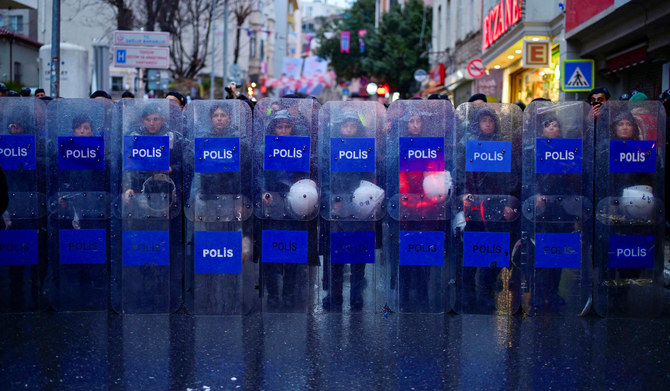
- Authorities later opened up the square for celebrations in 2010, but it was shut down again after it played host to anti-government protests in 2013 targeting Erdogan
ISTANBUL: Turkish police on Tuesday sealed off Istanbul’s central Taksim Square to prevent any May Day protests as President Recep Tayyip Erdogan warned unions to stay away from any provocative steps.
High metal barriers were erected around the square, AFP journalists reported.
The stepped-up security measures came a day after Interior Minister Ali Yerlikaya said authorities had designated 40 areas for May Day celebrations with the exception of the emblematic Taksim Square.
Yerlikaya said some unions had demanded to use the square, the epicenter of 2013 protests against the government of then prime minister Recep Tayyip Erdogan, now president, but that it would not be allowed.
“Taksim Square and its surrounding vicinity is not convenient for any rally,” he said.
Istanbul’s governor’s office has announced some roads will be closed to traffic while restrictions will be imposed on public transport as part of security measures.
Turkiye’s main opposition CHP party, which won a victory in the March 31 local elections while retaining control of several main cities including Istanbul, however pressed the government to open the square for labor rallies.
CHP leader Ozgur Ozel on Monday called on the interior minister to reconsider the ban on Taksim, which has been used in the past.
“Sealing off Taksim amounts to not recognizing the constitution,” he said.
In an address on Tuesday, Erdogan said insisting on staging a rally at unauthorized areas was “not well-intentioned.”
He said the opposition and some “marginal groups” sought to overshadow May Day spirit with their calls to rally at Taksim Square.
“I invite our unions and political parties to stay away from steps that would harm the May Day atmosphere,” he said.
Taksim Square was a rallying ground for May Day celebrations until 1977, when at least 34 people were killed during demonstrations.
Authorities later opened up the square for celebrations in 2010, but it was shut down again after it played host to anti-government protests in 2013 targeting Erdogan.
In 2023, Turkiye’s top constitutional court ruled that Taksim Square’s closure to protests constituted a violation of rights.
The Amnesty International rights group also said the ban “is based on entirely spurious security and public order grounds” and called for it to be lifted.
Calling the square “a place of huge symbolic significance,” Amnesty added that: “For more than a decade, the Turkish authorities have unlawfully restricted people’s right to assembly and criminalized peaceful protests that take place in the square.”
More than 42,000 police will be on duty in the city for May 1.
UN Palestinian agency chief seeks probe into treatment of Gaza staff by Israel
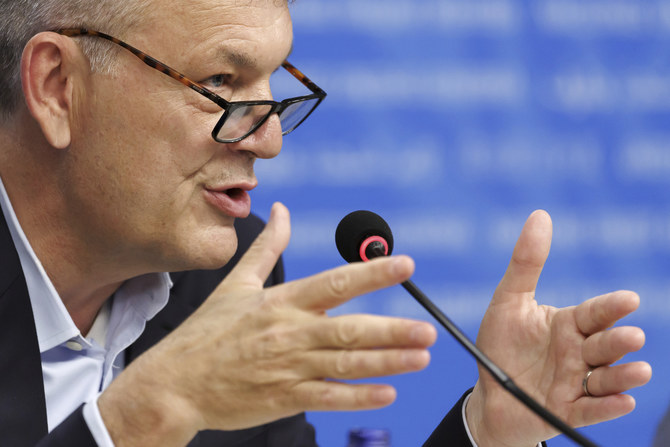
- Lazzarini said Israel blocked him from entering Gaza last month, and that he plans to visit again on Sunday. He voiced hope that Israel would let him in
- Israel has killed more than 34,000 Palestinians in Gaza, mostly women and children, according to the health ministry in the Hamas-run territory
GENEVA: The head of the UN agency for Palestinian refugees, UNRWA, called on Tuesday for countries to back an independent investigation into alleged killings and detentions of its staff and damage to its premises once the Israel-Hamas conflict ends.
UNRWA has accused Israel of targeting its facilities during more than seven months of conflict in the Gaza Strip, and said 182 of its staff there had been killed and more than 160 of its shelters hit, resulting in the deaths of hundreds of people fleeing Israeli bombardment.
After briefing UN member states in Geneva, UNRWA Commissioner-General Philippe Lazzarini told reporters he wanted the countries to back an independent investigation “to look into this blatant disregard of the United Nations in order to avoid that this becomes also in the future the new standard.”
Israel’s diplomatic mission in Geneva reacted by accusing UNRWA of complicity with Hamas, saying the militant group was embedded within the UN agency’s infrastructure.
Lazzarini said Israel blocked him from entering Gaza last month, and that he plans to visit again on Sunday. He voiced hope that Israel would let him in. UNRWA is the biggest humanitarian aid provider in Gaza where its 13,000 staff there also run schools and social services for the refugees who make up the majority of Gazans.
Israel accuses 19 of its staff members of taking part in the Oct. 7 Hamas attacks against Israel that killed 1,200 people and triggered Israel’s military offensive.
Israeli Prime Minister Benjamin Netanyahu has called for UNRWA to be shut down, saying it seeks to preserve the issue of Palestinian refugees. A review of the agency’s neutrality said Israel had yet to provide evidence for its accusations that a significant number of UNRWA staff were members of terrorist groups and Lazzarini said that all but a handful of countries had now unblocked funds they had paused after the Israeli allegations.
He listed those still withholding funds as the US, Britain, Austria and his native Switzerland.
The Swiss lower house’s foreign affairs committee on Tuesday narrowly voted to partly unblock financial aid to UNRWA solely for humanitarian ends, a step that needs further parliamentary approval.
Some $267 million in total remains blocked, Lazzarini said, based on a tally of countries’ prior commitments. The agency has raised $115 million in private funding, he added.
Another UN investigation into the allegations against UNRWA staff members is still under way.
Food and other humanitarian aid supplies to Gaza have improved in April, but there is still far from enough to reverse the trend toward famine, he said.
“We are engaged in a race against the clock to reverse the spreading of hunger and the looming famine especially in the northern part,” he said.
Gas blast kills eight at Beirut restaurant: minister
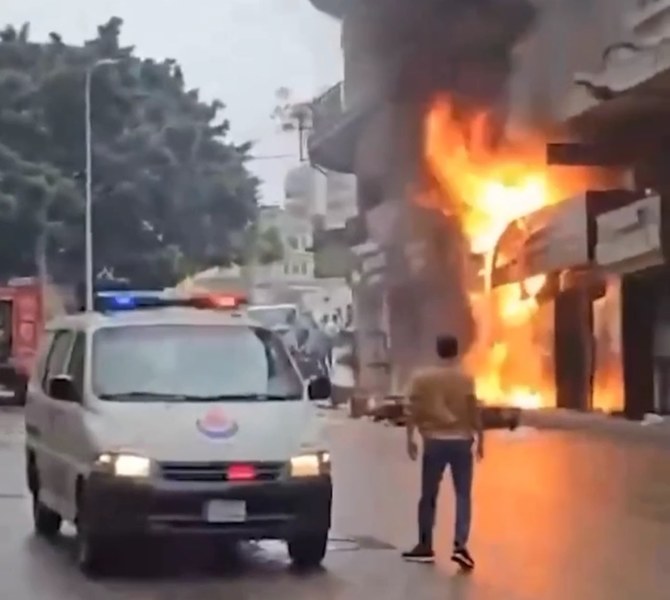
- The firefighters put out a blaze in a small restaurant in Beirut after “a gas leak caused an explosion at the restaurant”
BEIRUT: A fire caused by a gas canister explosion killed at least eight people at a restaurant in Beirut on Tuesday, a Lebanese government minister and firefighters said.
The state-run National News Agency quoted the Beirut Fire Brigade as saying that “eight victims died of suffocation inside the restaurant.”
The firefighters put out a blaze in a small restaurant in Beirut after “a gas leak caused an explosion at the restaurant,” NNA added, quoted the same source.
Interior Minister Bassam Mawlawi toured the site, also telling reporters at least eight people had been killed “by suffocation” in the blast.
Some lawmakers representing Beirut also visited, with parliament member Ibrahim Mneimneh questioning safety standards at the restaurant.
The accident “shows this place was not in line with public safety standards,” he said.
Lebanon’s economy has been in free-fall since late 2019, worsening a long-running public oversight problem in different sectors, especially with regard to public safety.
Kuwait launches anti-smoking campaign to safeguard children
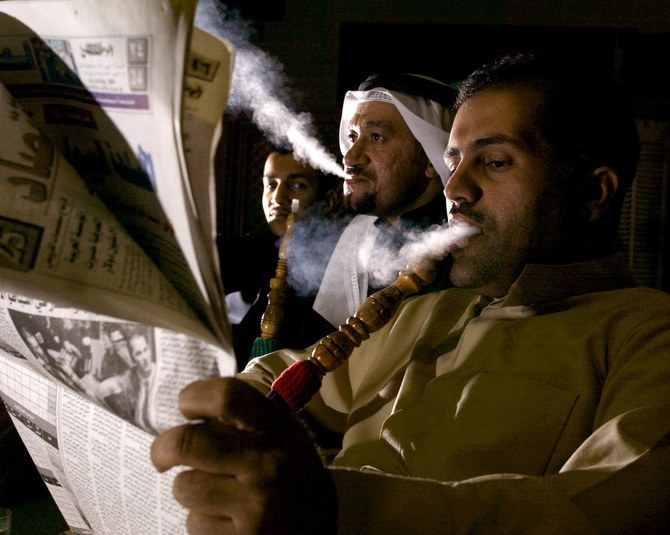
- WHO reveal a threefold increase globally in e-cigarette usage among children aged 13-15 compared to adults
LONDON: The Kuwaiti Ministry of Health will launch an anti-smoking awareness campaign on Thursday aimed at safeguarding children from the dangers of tobacco, the Kuwait News Agency reported on Tuesday.
Collaborating with various ministries and state agencies, the campaign will underscore the critical need to protect vulnerable populations from the hazards of smoking.
Dr. Abeer Al-Baho, director of the ministry’s Health Promotion Department, said the awareness drive will be inclusive by reaching out to men, women, and children alike.
The campaign will highlight the detrimental effects of smoking, shed light on the legal ramifications for those found to be smoking in unauthorized areas, and particularly safeguard individuals with health vulnerabilities, minors, and the environment.
Al-Baho stressed the campaign’s pivotal role in curbing smoking-related diseases and fatalities, emphasizing the direct and indirect harm caused to the lungs and heart and the links with many types of cancer.
Scheduled to run until May 31, coinciding with World No Tobacco Day, the campaign will span all six Kuwaiti governorates, featuring demonstrations that show the hazards of smoking.
Disturbing statistics from the World Health Organization reveal a threefold increase globally in e-cigarette usage among children aged 13-15 compared to adults, prompting urgent warnings about the risks posed by tobacco in its various forms, including traditional smoking and e-cigarettes.



